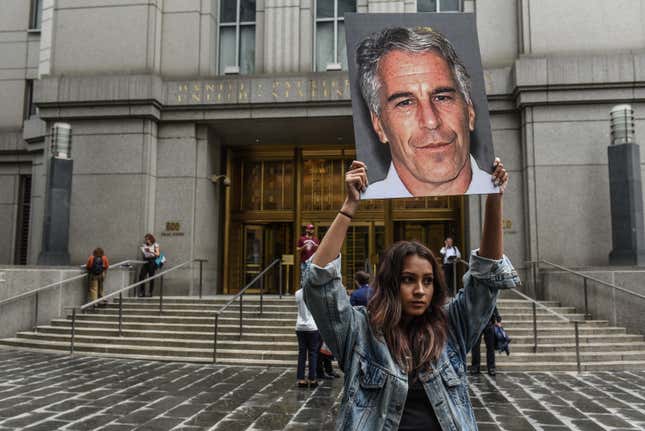Reporter Claims Vanity Fair Cut Details About Epstein's Alleged Sexual Abuse in 2003
Latest

In 2003, investigative reporter Vicky Ward published a lavish profile in Vanity Fair of a relatively unknown billionaire named Jeffrey Epstein. Titled “The Talented Mr. Epstein,” the profile was an unveiling for the money man, who at the time seemed to be newly present in powerful circles. The resulting piece is classic Vanity Fair fodder; it chronicles Epstein’s “complicated past,” financial squabbles, business rifts, and lingers on his famous friends and luxurious reportedly 51,000-square-foot home, “a high-walled, eclectic, imperious fantasy that seems to have no boundaries.”
Missing from the article were allegations Ward said she uncovered while reporting the story: that Epstein had attempted to extort two sisters into sex, and eventually committed statutory rape with the younger girl, then only 16.
Epstein was charged on Monday with one count of sex trafficking and one count of sex trafficking conspiracy, in a series of allegations that date back more than 15 years and encompass dozens of victims, many of whom were underage. Shortly after Epstein was charged, Ward published a Twitter thread reiterating a story she has been telling for years at this point: how Epstein’s history of alleged sexual assault got cut from the profile. She originally wrote a piece covering the details for the Daily Beast in 2015. (It’s worth reading the thread in full.)
Ward describes an unusually close relationship between Epstein and her reporting process. “He phoned regularly,” Ward wrote. She dutifully met with a set of sources, lined up by Epstein, to speak to his business practices. Unsurprisingly, they described Epstein glowingly, his “brilliantly creative mind, his intellectual prowess—a mental agility that, to put it bluntly, was simply not evident in the many phone conversations he had with me.” After feeling that something was amiss, Ward dug into Epstein’s relationships, eventually finding several cases of extortion:
-

-

-

-

-

-

-

-

-

-

-

-

-

-

-

-

-

-

-

-

-

-

-

-

-

-

-

-

-

-

-

-

-

-

-

-

-

-

-

-








































